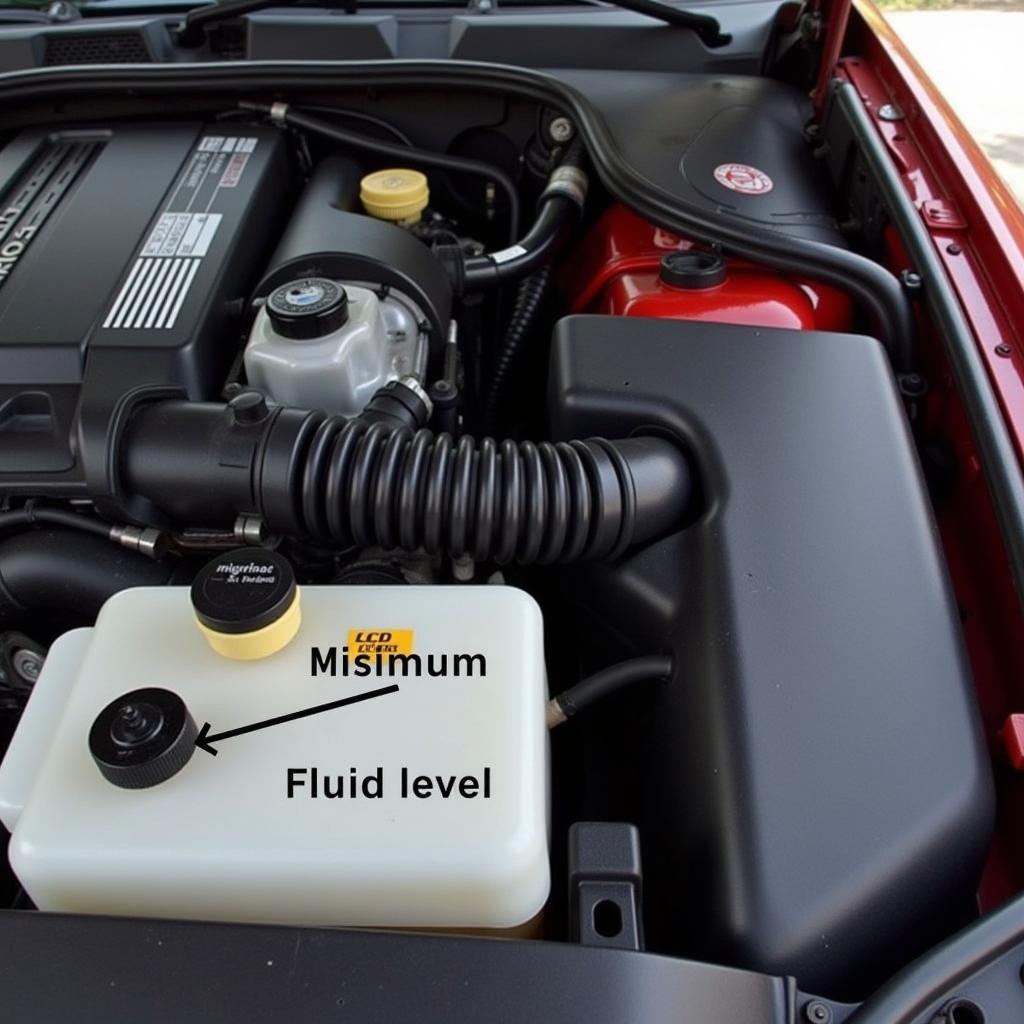That dreaded ticking sound emanating from your 2009 BMW on a cold start can be unsettling. This article dives deep into the common causes of this issue, providing solutions and guidance to help you diagnose and fix the problem. Whether you’re a seasoned mechanic or a BMW owner concerned about that annoying tick, this comprehensive guide offers valuable insights and practical advice.
Understanding the Tick: Why Does My 2009 BMW Tick on Cold Start?
Several factors can contribute to a ticking noise when starting your 2009 BMW cold. These range from relatively minor issues like low oil levels to more complex problems requiring professional attention. Identifying the source of the tick is crucial for effective troubleshooting.
Common Culprits: Identifying the Source of the Ticking Noise
- Low Oil Level: Perhaps the simplest explanation, insufficient oil can cause a ticking sound, especially on a cold start. Check your oil level immediately and top it off if necessary.
- Worn Hydraulic Valve Lifters: These small components maintain proper valve clearance, and when worn, they can create a noticeable ticking noise. This is a more common issue in higher mileage BMWs.
- Timing Chain Tensioner Issues: A faulty timing chain tensioner can also lead to a ticking sound, particularly at cold start. This is a more serious problem that requires prompt attention.
- VANOS Solenoid Problems: The Variable Nockenwellen Steuerung (VANOS) system controls valve timing, and a malfunctioning solenoid can result in a ticking noise, among other issues.
- Exhaust Leaks: While less common, a small exhaust leak can sometimes manifest as a ticking sound, particularly during cold starts when metal components are contracting.
Diagnosing the Problem: Pinpointing the Tick’s Origin
Identifying the exact source of the ticking can be challenging. A thorough inspection, including listening carefully to the engine with a stethoscope, is often required.
How Can I Check My Oil Level?
Checking your oil level is straightforward: locate the dipstick, pull it out, wipe it clean, reinsert it fully, and then remove it again to observe the oil level. Ensure the oil level is within the designated range on the dipstick.
What are the Symptoms of a Bad Timing Chain Tensioner?
Symptoms of a failing timing chain tensioner can include a rattling or ticking noise, especially at cold start, as well as engine performance issues like rough idling or a decrease in power.
Solving the Tick: Effective Repair Strategies
Once you’ve identified the source of the ticking sound, the next step is to implement the appropriate repair strategy. Some issues, like low oil, can be easily resolved, while others may require professional assistance.
Replacing Hydraulic Valve Lifters
Worn hydraulic valve lifters typically require replacement. This involves removing the valve cover and replacing the faulty lifters.
Addressing Timing Chain Tensioner Problems
A faulty timing chain tensioner should be replaced promptly. This is a more involved repair that may require specialized tools and expertise.
Fixing VANOS Solenoid Issues
A malfunctioning VANOS solenoid often necessitates replacement. This involves accessing the VANOS system and replacing the faulty solenoid.
Preventing Future Ticks: Proactive Maintenance Tips
Regular maintenance is crucial for preventing ticking noises and other engine problems.
- Regular Oil Changes: Adhering to the recommended oil change intervals is essential for maintaining proper engine lubrication and preventing ticking noises.
- Using Quality Oil: Using high-quality oil that meets BMW’s specifications ensures optimal engine performance and longevity.
- Routine Inspections: Regular engine inspections can help identify potential problems early on, preventing them from escalating into more significant issues.
Conclusion: Addressing Your 2009 BMW’s Ticking Sound
A ticking sound on a cold start in your 2009 BMW can be concerning, but understanding the potential causes and solutions can help you address the issue effectively. From simple fixes like topping off the oil to more complex repairs involving the timing chain or VANOS system, taking proactive steps will ensure your BMW runs smoothly and quietly. Remember, early diagnosis and proper maintenance are crucial for preventing future problems and keeping your 2009 BMW in top condition.
FAQ
- Is a ticking noise always serious? Not necessarily. Low oil can cause ticking, which is a simple fix. However, other causes can be more serious.
- How much does it cost to fix a timing chain tensioner? The cost can vary depending on the specific BMW model and labor rates.
- Can I drive my car with a ticking noise? While sometimes possible, it’s best to get it diagnosed promptly to avoid further damage.
- What type of oil should I use in my 2009 BMW? Consult your owner’s manual for the recommended oil type and viscosity.
- How often should I change my BMW’s oil? Generally, every 7,500 to 10,000 miles, but consult your owner’s manual for specific recommendations.
- Can I fix the VANOS solenoid myself? While possible for experienced DIYers, it’s often recommended to have a professional handle this repair.
- What are the signs of a failing hydraulic valve lifter? A consistent ticking noise, especially when the engine is cold, is a primary indicator.
Need assistance with your 2009 BMW ticking sound? Contact us via Whatsapp: +1 (641) 206-8880, Email: CARDIAGTECH[email protected] or visit us at 276 Reock St, City of Orange, NJ 07050, United States. Our 24/7 customer support team is ready to help.

